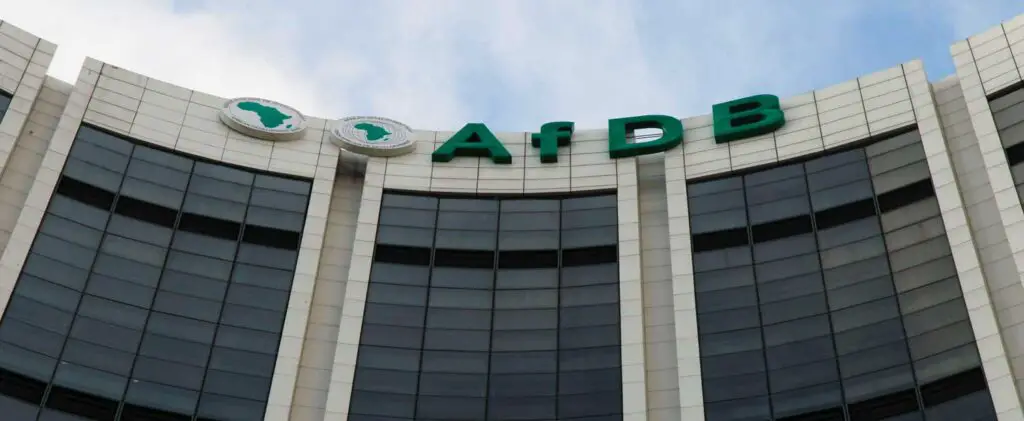Against all odds, Africa is enjoying faster economic growth than the rest of the world, and it will continue to do so for the next foreseeable future. This is according to the latest review by the Africa Development Bank (AfDB) which projects that the continent’s Gross Domestic Product (GDP) will grow 4% annually, on average, much better than the global average.
Released in Abidjan, Africa’s Macroeconomic Performance and Outlook Report indicates that in the medium-term, most regions in Africa will have moderate to strong economic performance.
“Despite facing significant headwinds due to global socio-economic shocks, all the five regions on the continent remain resilient with a steady outlook,” the report reassures stakeholders.
Also Read: Financing SMEs: Basis for impressive economic outlook
However, the report does highlight some red flags to watch out for that will require robust monetary and fiscal measures and structural policies.
The report is released at the start and mid-year to give an overall perspective of the continent’s economic standing.
This Macroeconomic Performance and Outlook report serves to complement the AfDB annual African Economic Outlook report with the latter focusing on wider aspects like regional policies and how they help shape the continent’s development.
“With 54 countries at different stages of growth, different economic structures, and diverse resource endowments, the pass-through effects of global shocks always differ by region and by country,” explained Dr. Akinwumi Adesina, the Africa Development Bank Group President.
He went on to cite that “…slowing global demand, tighter financial conditions, and disrupted supply chains, therefore, had differentiated impacts on African economies.”
“Despite the confluence of multiple shocks, growth across all five African regions was positive in 2022-and the outlook for 2023-24 is projected to be stable,” the AfDB President said.
Surprisingly, the report shows that Africa’s average GDP growth during Covid-19 was at a global high of 4.8% in 2021.
In 2022, during another global crisis, this time by the Russia-Ukraine war, Africa was badly hit, but even then, its economic annual average slowed only to 3.8 percent, a figure a lot higher than the rest of the world.
“Despite the economic slowdown, 53 of Africa’s 54 countries posted positive growth. All the five regions of the continent remain resilient with a steady outlook for the medium-term,” reads the positive AfDB Macroeconomic Performance and Outlook report.
Jeffrey Sachs positive outlook
Supporting this positive projection is the Director of the Center for Sustainable Development at Columbia University, economist Jeffrey Sachs. Mr. Sachs praised the report for acknowledging Africa’s commendable performance at a period when it was expected to crumble.
“The report shows that African economies are growing and growing consistently,” noted the renowned economist who doubles as United Nations’ Advocate for Sustainable Development Goals.
“Africa can and will rise to the growth of 7 percent or more per year consistently in the coming decades. What we’ll see, building on the resiliency we see in this report, is a real acceleration of Africa’s sustainable development so that Africa will be the fast-growing part of the world economy. Africa is the place to invest,” the economist reassured investors.
Also Read: East Africa maintains strong economic growth
Africa’s top 5 performing economies
Africa’s pre-Covid-19 top five performing economies are projected to grow by more than 5.5% on average in 2023-2024 and to reclaim their position among the world’s 10 fastest-growing economies.
1. Rwanda (7.9%)
2. Côte d’Ivoire (7.1%)
3. Benin (6.4%)
4. Ethiopia (6.0%)
5. Tanzania (5.6%)
The next five fastest-growing African economies that are projected to grow by more than 5.5% in the 2023-24 period include the Democratic Republic of Congo (6.8%), Gambia (6.4%), Mozambique (6.5%), Niger (9.6%), Senegal (9.4%), and Togo (6.3%).
Can Africa maintain strong economic growth against new headwinds?
The AfDB report also raises some disconcerting warnings related to global and regional risks. On top of that risk pool is food inflation and rising fuel prices.
There are also concerns about ‘tightening global financial conditions’ and Africa’s continued reliance on aid and debt, not to mention the risk of ballooning domestic debt service costs.
Then there is the overarching issue of climate change. Short of Africa securing climate change adaptation funding promised at every COP-sitting since the Paris meeting, Africa may face severe food shortage which in turn will affect its economic performance and may very well pull the continent back to the ‘dark ages.’
Finally, the risk of election-related conflicts looms large in the continent especially in 2023 where several key democracies go to the polls including Nigeria and DRC.
The report warns that should any of these regions slip into conflict then they will affect the overall economic performance of the entire continent.
Bold interventions
To avoid this grim but rather unlikely outcome, African policymakers are advised to enforce bold policy actions that will strengthen and help the continent mitigate the otherwise compounding risks.
The report calls for what it describes as,’ timely and aggressive monetary policy tightening in countries with acute inflation.’
“Coordination with the fiscal policy will further strengthen the levers to ease inflationary pressures,” reads the report.
This is the time that Africa must make hard choices in terms of ‘friend-shoring, allegiances, and alliances.
Africa can no longer be dependent on single major producers as is the current case when it comes to the importation of grains; Africa is almost solely reliant on Ukraine and Russia on wheat, a fact that has remained unaddressed for the fragile and unreliable deal that it is.
If Africa is to enhance its resilience to global economic shocks, it must boost intra-Africa trade and it has to increase its own capacity to produce manufactured final products otherwise it will remain vulnerable to the ever-so-volatile global commodity prices.
The report further advises Africa’s policymakers to “…accelerate structural reforms to build tax administration capacity and investments in digitalization and e-governance to enhance transparency, reduce illicit financial flows, and scale up domestic resource mobilization.”
“Improving institutional governance and enacting policies that can leverage the private sector financing, especially in climate-proof and pandemic-proof greenfield projects and mobilizing Africa’s resources for inclusive and sustainable development…” is the way forward for Africa.
AfDB adds that the continent must take decisive action to reduce structural budget deficits on the one hand and to cut down the accumulation of public debt on the other.
In the words of the African Development Bank Acting Chief Economist and Vice President Kevin Urama; “There are many smart investment opportunities in key sectors: agriculture, energy markets, minerals, health infrastructure, and pharmaceutical industries, light manufacturing, transport and logistics, digital economy and more. The continent remains a treasure trove for smart investors globally.”











